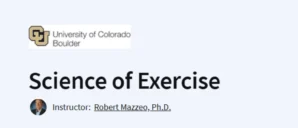What you will learn in Bugs 101: Insect-Human Interactions Course
- Fundamental insect biology and classification
- Ecological roles of beneficial insects
- Management of agricultural/medical pests
- Insect-borne disease prevention
- Pollinator conservation strategies
- Forensic entomology applications
- Ethical collection/preservation methods
Program Overview
Insect Diversity & Evolution
⏱️ 2 weeks
- Covers major insect orders, morphological adaptations, and evolutionary history.
- Includes virtual insect collection lab.
Beneficial Insect Ecology
⏱️2 weeks
- Examines pollination services, nutrient cycling, and biological control.
- Features case studies on pollinator decline.
Pest Management
⏱️ 2 weeks
- Addresses integrated pest management (IPM) for crops and urban environments.
- Includes pesticide safety protocols.
Human Health Connections
⏱️ 2 weeks
- Focuses on disease vectors (mosquitoes, ticks), allergy triggers, and public health interventions.
Get certificate
Job Outlook
- Professional value: Essential for educators/school administrators
- Salary potential: Special education directors earn 70K−120K
- Industry demand: 8% growth for special ed teachers (BLS)
- Certification benefit: Counts toward continuing education units
Specification: Bugs 101: Insect-Human Interactions
|
FAQs
- Yes! The course is designed for complete beginners, even those without a science background.
- The content starts with the basics of insect diversity and gradually introduces more complex ideas in an easy-to-follow way.
- You’ll get guided explanations through videos, visuals, and real-world examples, so you don’t need prior knowledge to understand.
- It’s a great option if you’re simply curious about nature, ecology, or how insects affect daily life.
- Insects are actually the most diverse group of animals on Earth and play huge roles in human survival.
- They pollinate crops, recycle nutrients, control pests naturally, and even inspire new technologies.
- While some do spread diseases, the course helps you understand both the benefits and the challenges insects bring.
- Learning this can change your perspective on bugs from being “just annoying” to being fascinating and essential.
- On average, the course requires about 2–3 hours per week.
- Since it’s self-paced, you can study whenever it fits your schedule.
- You can complete it in a few weeks with consistent effort, or spread it out over a longer period.
- This flexibility makes it suitable for students, professionals, or anyone with a busy lifestyle.
- Yes, if you’re planning a career in health sciences, agriculture, biology, or environmental studies, it provides a strong foundation.
- It can also enhance your understanding if you work in public health, pest management, or education.
- For students, it’s a good introduction to entomology (the study of insects), which is useful for further studies in life sciences.
- Even if you don’t need it for career reasons, the knowledge is valuable for personal enrichment.
- Yes, you can earn a certificate of completion after successfully finishing the course.
- This certificate can be added to your CV or LinkedIn profile to showcase your interest in science and ecology.
- It’s especially useful if you’re pursuing related fields or want to demonstrate additional skills to employers or schools.
- Some platforms may offer the certificate for free, while others may require a small fee.





